There’s never been a point in history where more information and resources have been available to parents. And while information can be helpful, it can also be overwhelming.
The more information we take in, the easier it becomes to lose sight of what we truly need to know. Parenting, something that humans have been doing since the beginning of time, now feels complicated and confusing.
Perhaps you worry about “spoiling” your baby.
Maybe you feel like there’s a specific way you should be diapering or feeding or scheduling.
Has it always been this complicated?
No.
Raise your hand if you’d like a simpler way.
We see you, and we want to help you get back to “The Basics.” Our goal is for you to have less stress and more confidence as a parent or caregiver by the end of this post.
The Palmetto Basics are 5 fun, simple and powerful ways that every parent can give every child a great start in life!
The word “every” is important. We don’t believe you need a college education, special skills, or a bunch of books written by experts in order to be a good parent. The Palmetto Basics help you seize the opportunity of these early years in simple, everyday ways!
Did you know that 80% of brain development happens during the first three years of life?

That means the early years are the most important window in a child’s life! If you feel like you’ve missed this window, don’t fret; the brain can adapt and learn new things throughout our lives. But because it’s designed to absorb massive amounts of information during the early years as babies and toddlers interact with other people, this early learning becomes the foundation for all future learning.
So what are these Basics and how do you “get” them? Like Dorothy and the ruby red slippers, you probably already have the resources you need. You just need to know how to use them.
Here we go:
Basic #1: Maximize Love & Manage Stress

This is the first Basic because it’s the most important. Learn this and you’ll have an incredible foundation for the other four Basics to take root and grow.
What does it mean to “Maximize Love?”
Children thrive when their world seems loving, safe, and predictable.
When you express love through snuggles, hugs, and kisses —
When you respond to your baby’s needs by feeding her or changing his diaper —
When they smile or coo and you smile and talk back —
You are teaching your child that they can count on you, that their world is secure. As your young child grows and you keep loving them and responding to their changing needs, you reinforce this invaluable message, “I love you. You are safe. I am here to take care of you and meet your needs.”
What does is mean to “Manage Stress?”
Stress is unavoidable. But we can learn to manage stress so that negative emotions don’t trickle down to our young children. Too much stress and chaos in a young child’s life are toxic for a brain that is still developing.
We can learn to work through negative emotions by taking care of ourselves, by walking away for a minute to take a deep breath and count to 10, by finding a safe person to talk to or to help with our children.
Having a routine is another way to manage stress.
This doesn’t mean a rigid schedule. Think of a routine as a kind and helpful guide for your day, a simple rhythm that provides a consistent order for things like eating, napping, reading together, and bedtime.
When a child knows what to expect, they feel that the world is predictable and that makes them feel safe. It also means they are able to make transitions with less fuss and that means less stress for you! {Click here to learn more.}
Basic #2: Talk, Sing and Point
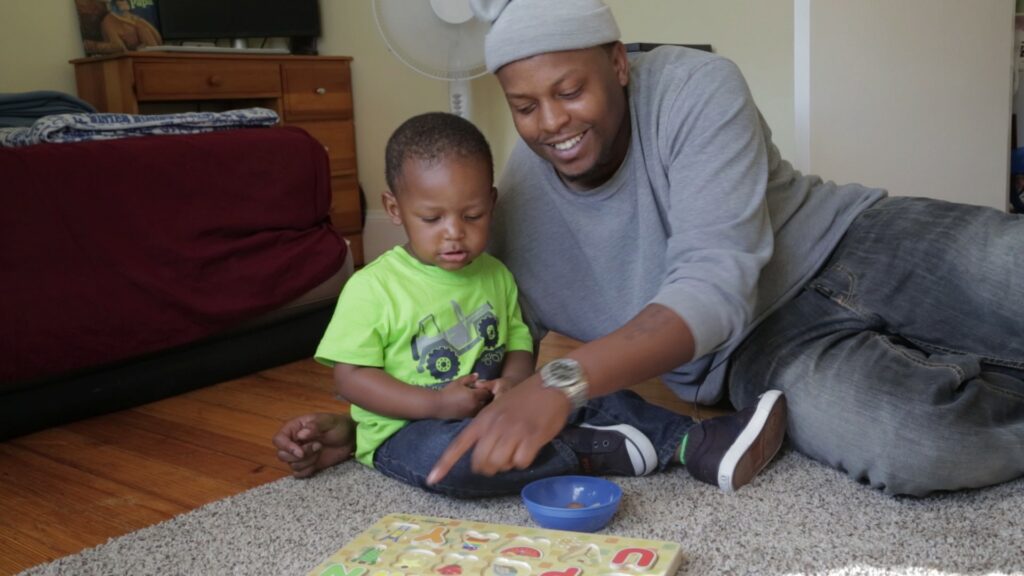
That instinct you have to talk to your baby even though she can’t understand what you’re saying —
The way you may sing a silly song as you pat him dry after bath time —
How you point to an animal and say, “That’s a doggie! The doggie says ‘ruff!” —
These games and songs and funny voices are growing a healthy brain!
Children learn language from the moment they are born. Day by day, babies learn that sounds have meaning. Talking with your toddler and answering questions is an important way to teach them about the world.
So keep talking, keep singing, keep pointing. As you do, know that powerful learning is taking place. {Click here to learn more.}
Basic #3: Count, Group and Compare
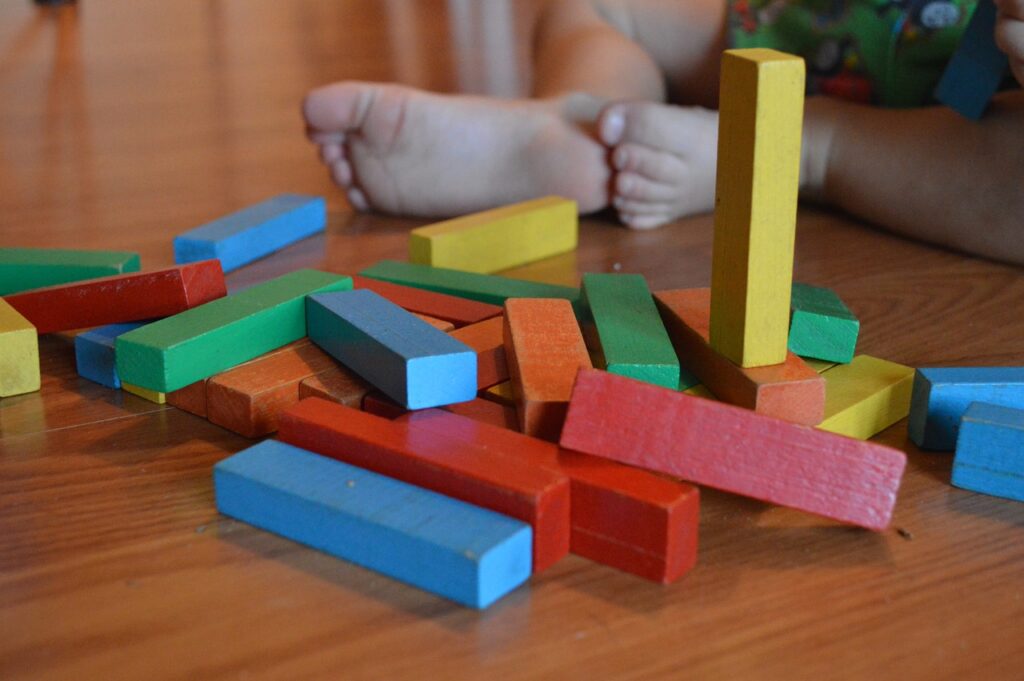
Believe it or not, babies come into the world pre-wired to learn simple math ideas, including numbers, patterns, and making comparisons (big or small, heavy or light, short or tall.)
Count your child’s toes as you change his diaper.
Count pieces of fruit or Cheerios.
Sort and match the socks together as you do laundry.
Arrange blocks or toys by color, shape, or size.
These fun, simple, everyday activities are building a strong brain that will be ready for important math and thinking skills later on. {Click here to learn more.}
Basic #4: Explore through Movement and Play
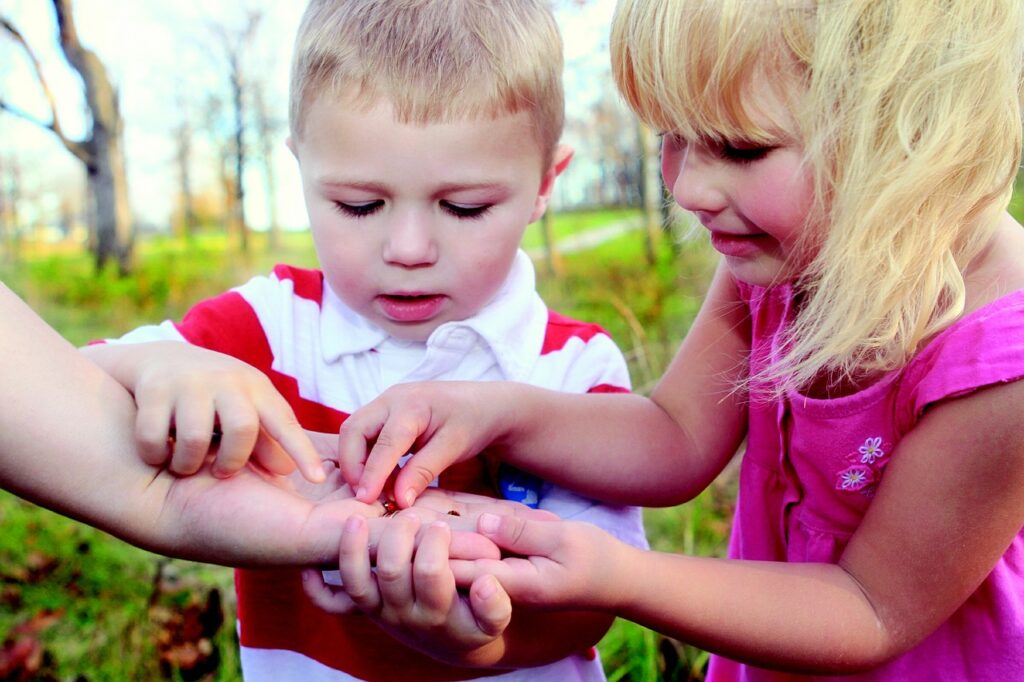
This is just another way of saying, “Let your child move their body!”
Research shows that the brain needs to be stimulated through movement and exercise in order to develop properly. Thankfully, movement and play come naturally to children! We just need to give them plenty of opportunity.
Encourage tummy time with your baby and play peek-a-boo.
Give him opportunity to learn to roll over, to crawl, to take those first steps.
Get outside, climb on the playground, and toss a ball.
Provide crayons and paper so their little hands can develop the small but important muscles they’ll need for writing later on.
In a time when we rely too much on devices, even for our babies and toddlers, it’s more important than ever for young children to run, jump, explore, and play. You’re not just building a healthy body; you’re building a healthy brain! {Click here to learn more.}
Basic #5: Read and Discuss Stories
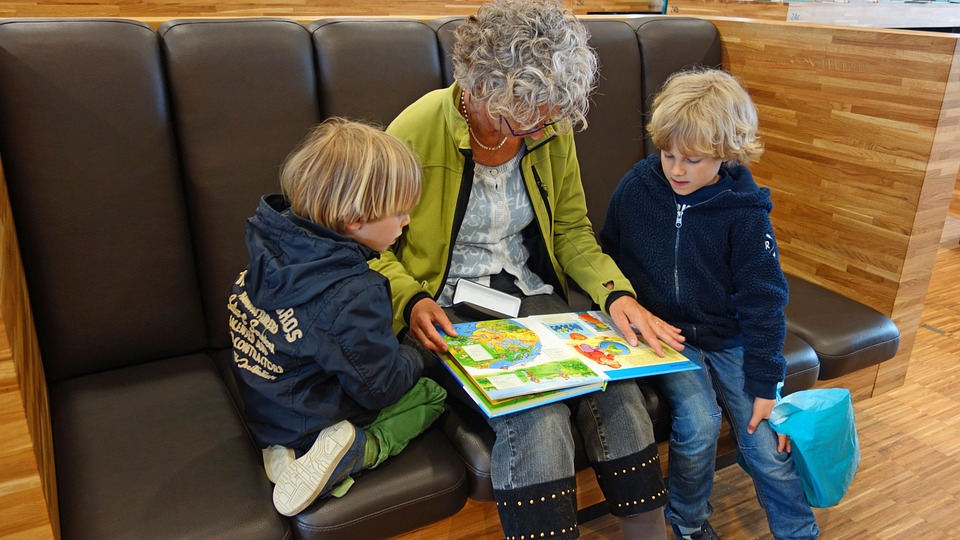
Did you know that you can begin reading to your child from the moment he or she is born?
If you read to your child just 15 minutes a day, they will have heard many millions of words by the time they begin kindergarten. That’s right, millions. Reading books can expose our children to different kinds of words than the ones we say as we go about our everyday activities. Imagine how rich their “word bank” will be by the time they start school!
In the earliest years, reading to your child is less about understanding a story and more about hearing words and having positive, happy experiences with books.
When you read to your infant, they learn how books work and develop new language skills. When you read to your toddler, they learn about all kinds of people, places, and things. These building blocks are so important for school and for life.
With infants, you don’t have the read the words on the pages. Simply describe what is happening and point to the pictures as you turn the pages. Talk about colors, shapes, and animals you see.
As they get older, let them turn the pages, point to pictures, and talk about what they see. Let them ask questions. You can ask questions too! “Why is the boy sad?” or “What do you think will happen next?”
Keep reading time fun by reading in different voices. Keep reading time positive by closing the book if they become tired or squirmy. Again, the early years are all about having happy experiences with books! {Click here to learn more.}
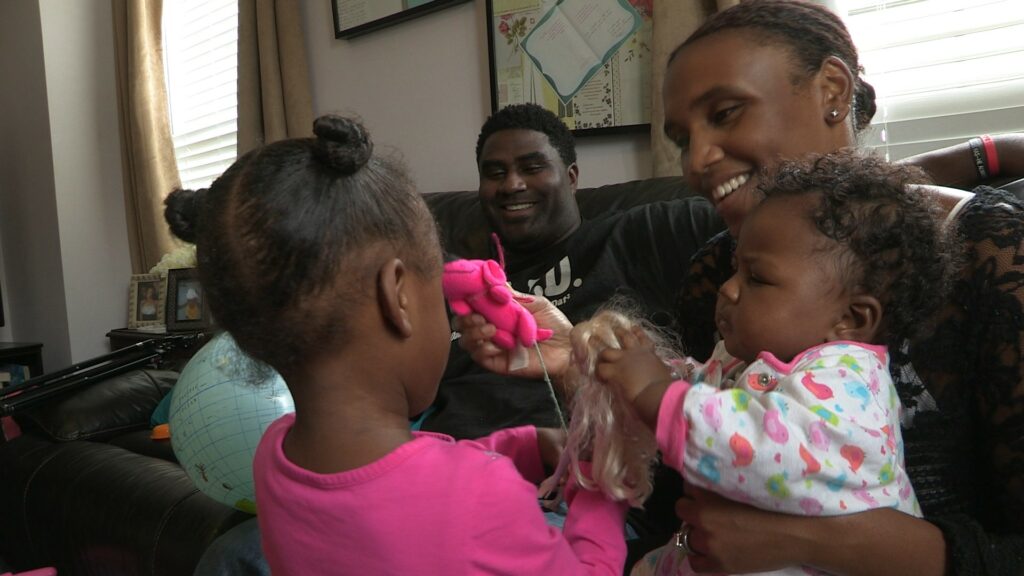
Can you love your child and respond to their needs? Can you learn practical ways to manage stress and provide simple routines at home?
Can you talk, sing, and point with your child as your go through each day?
Can you make things like counting, recognizing shapes, and learning colors part of your daily conversations?
Can you provide simple ways — inside and outside — for your child to move, explore, and play?
Can you spend a few minutes a day together snuggled up with books?
If you answered yes to these questions, we have great news:
YOU can give your child a great start in life! You are taking the most important steps toward their school readiness and life readiness. You are setting them up for success as you seize the opportunity of these early years.
You don’t need to hear from the experts. You don’t need fancy toys. You don’t need to read the latest parenting book or article. You have The Basics and that’s all you really need.
///
If you would like to learn more about The Palmetto Basics, visit www.palmettobasics.org.
For simple and encouraging resources that can help you on your journey, follow Palmetto Basics on Facebook and Twitter.
If your Upstate, South Carolina organization, church, school, business, or group would like to use The Palmetto Basics as a resource to serve families, we’d love for you to join us! It’s free to become a “Champion for Children.” Email us at [email protected].
Sign up here to receive helpful resources and stay up to date with news and events.

